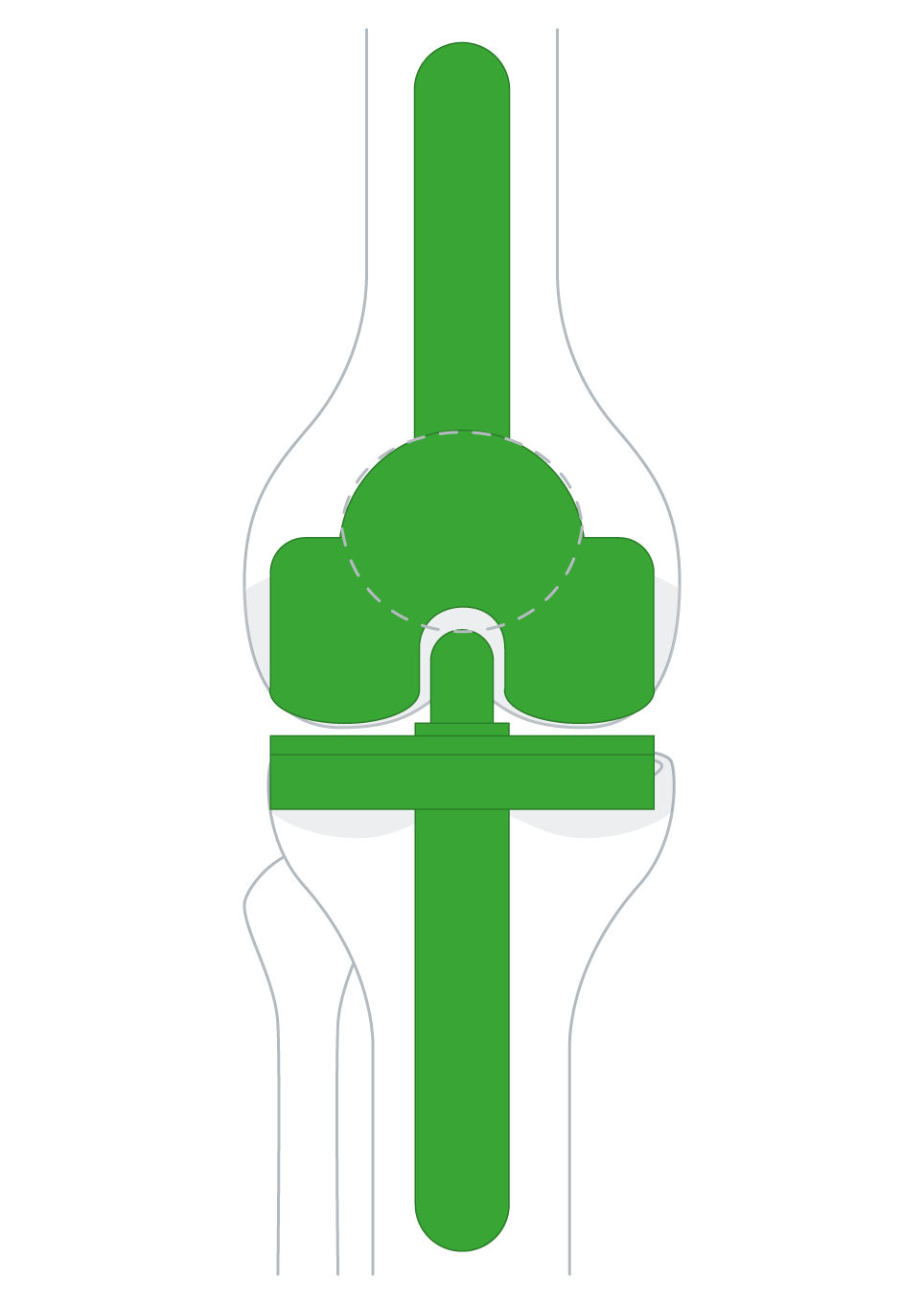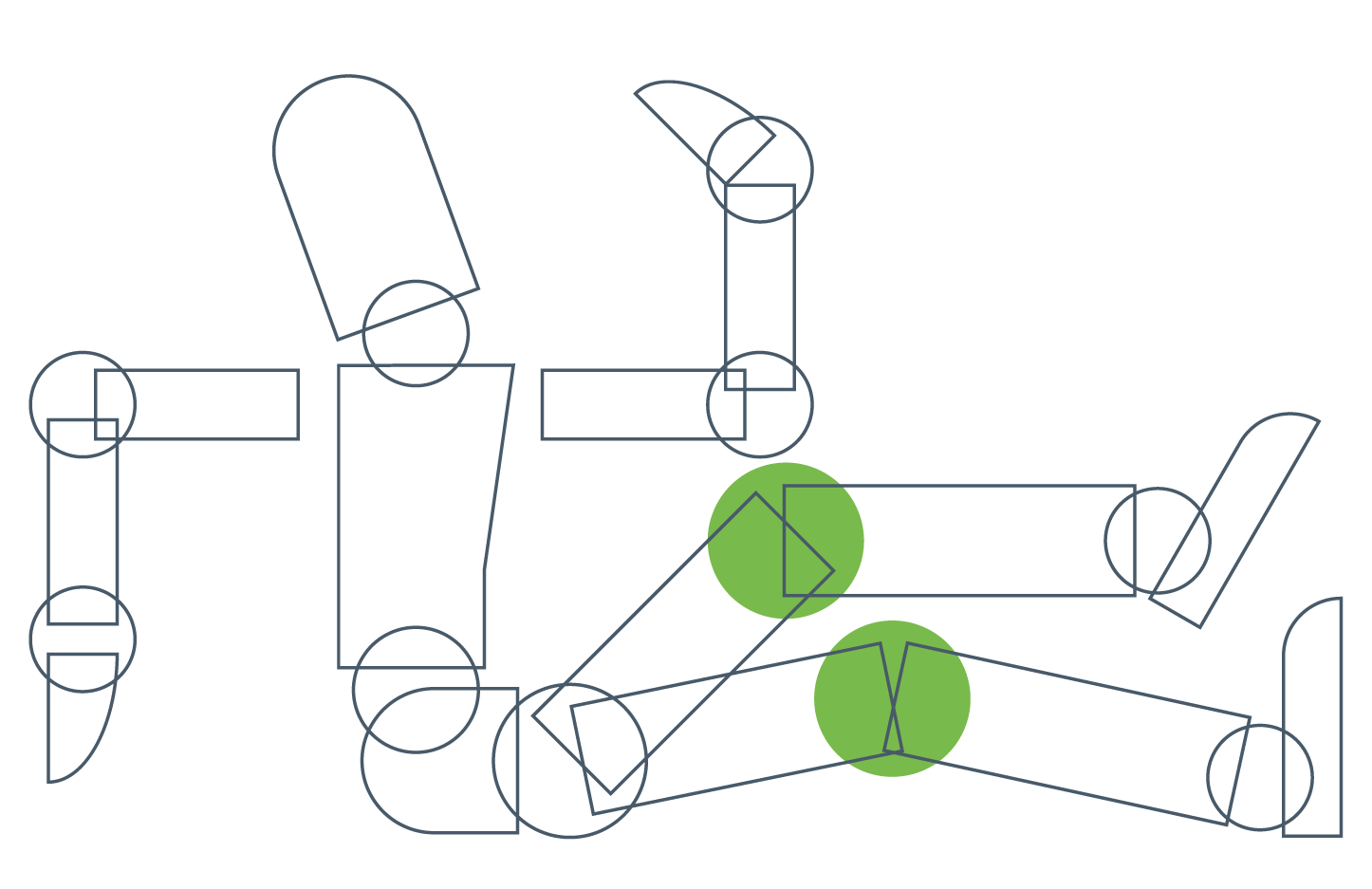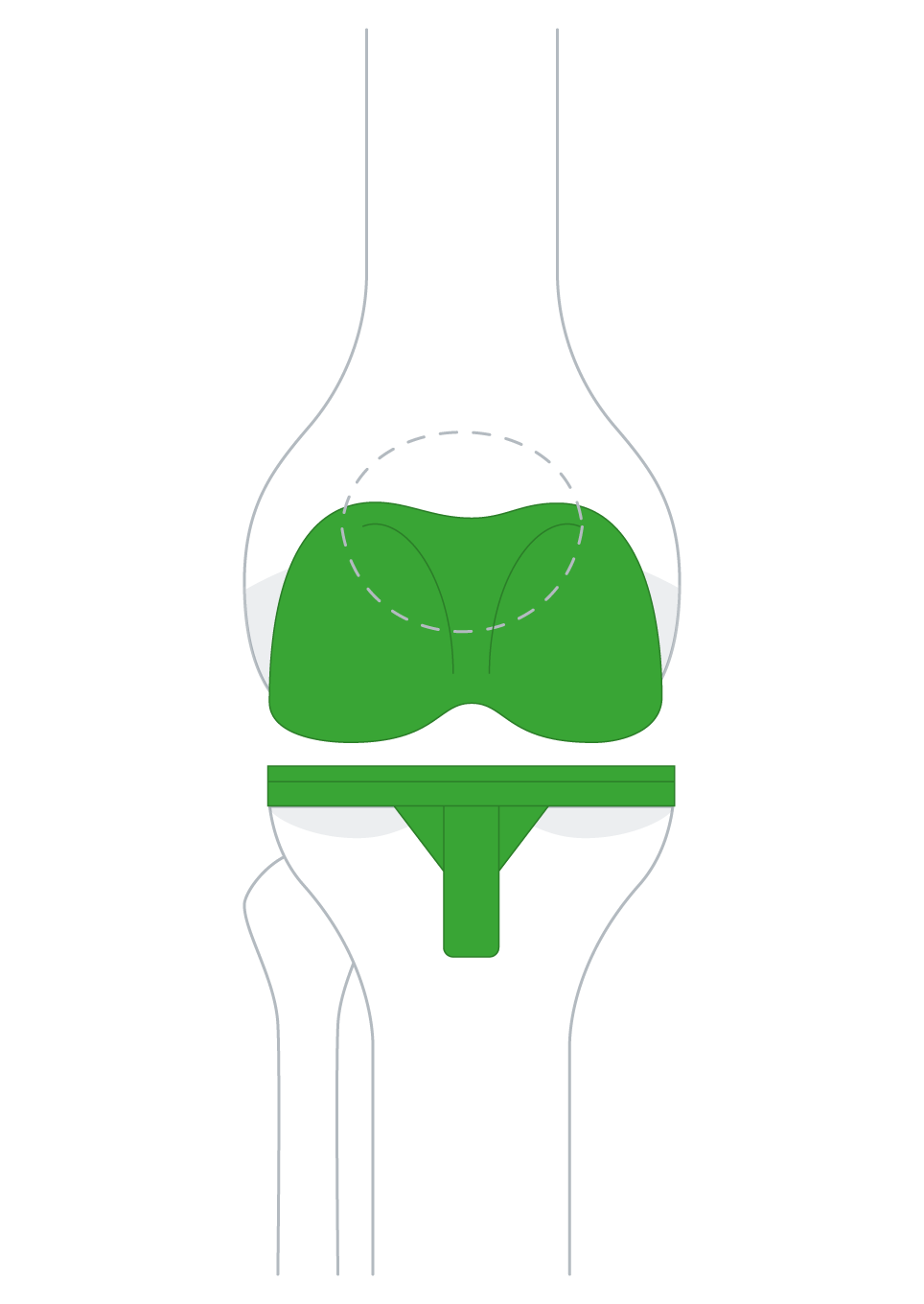
KNee replacement
Osteoarthritis of the knee is one of the most common diseases of the adult population. Its occurrence in society is rising. Osteoarthritis is a very complex joint disease. In the advanced stadium, it can be successfully treated only with a prosthesis (knee joint replacement, knee arthroplasty).
In some stages of knee osteoarthritis, a partial knee joint replacement is an option.
Partial, total, or revision knee replacement — the complete spectrum is covered.
TOTAL KNEE REPLACEMENT
Total knee replacement (TKR) is the most commonly used type of knee implant. The prosthesis, made out of 8-9 mm thick metal part, replaces the surface of the knee. A polyethylene component is placed between the two metal parts as the bearing surface. The implant can be fixed to the bone using cement or press-fitted.
Dr. Klasan combines the most advanced surgical techniques from the experiences obtained worldwide and the use of the most modern implants on the market. Dr. Klasan also diligently works on scientifically verifying and improving the techniques and the implants. The surgical time is short, usually less than an hour, and mobilization occurs on the day of the surgery. Typically, the in-hospital stay is 3-5 days.

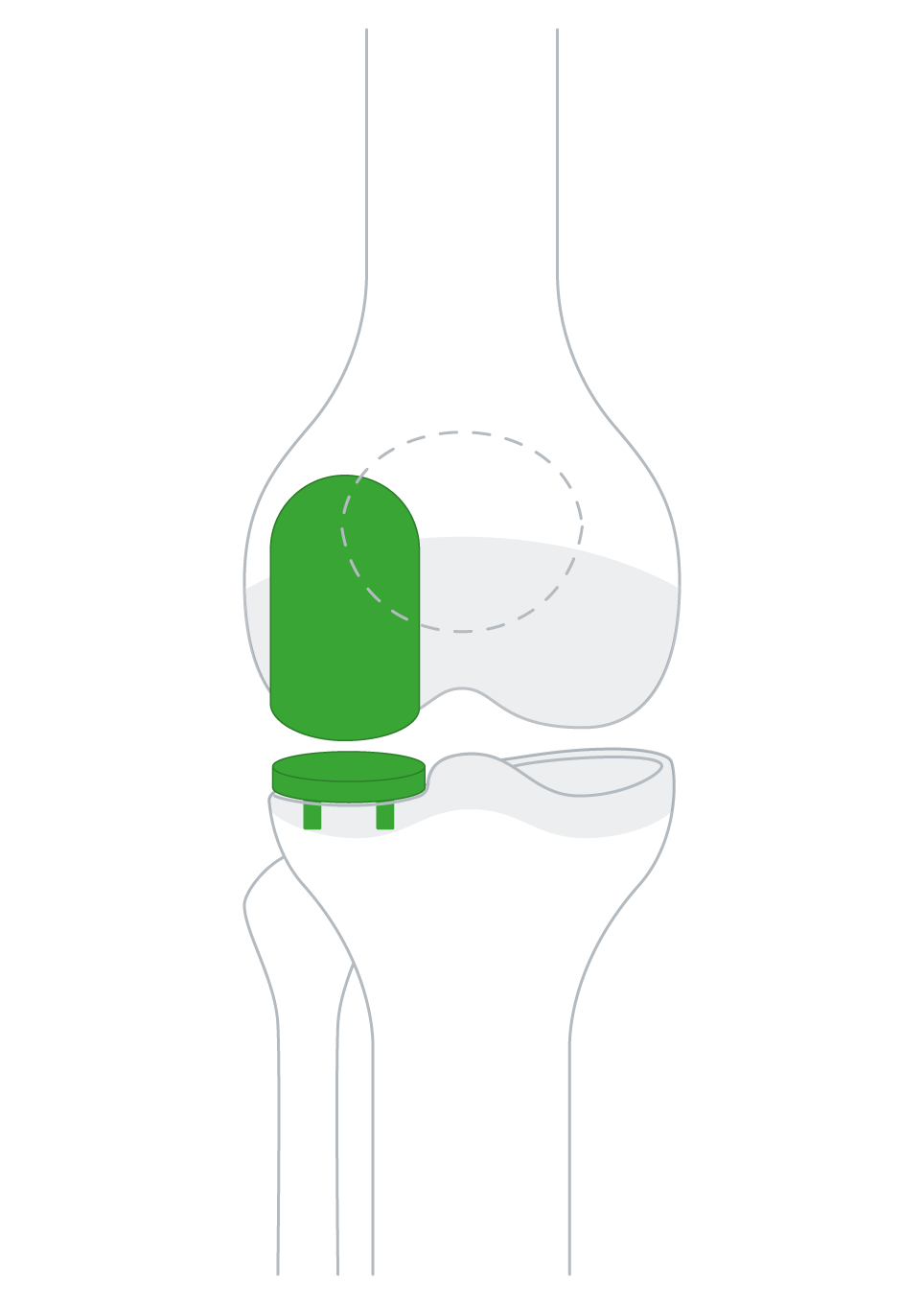
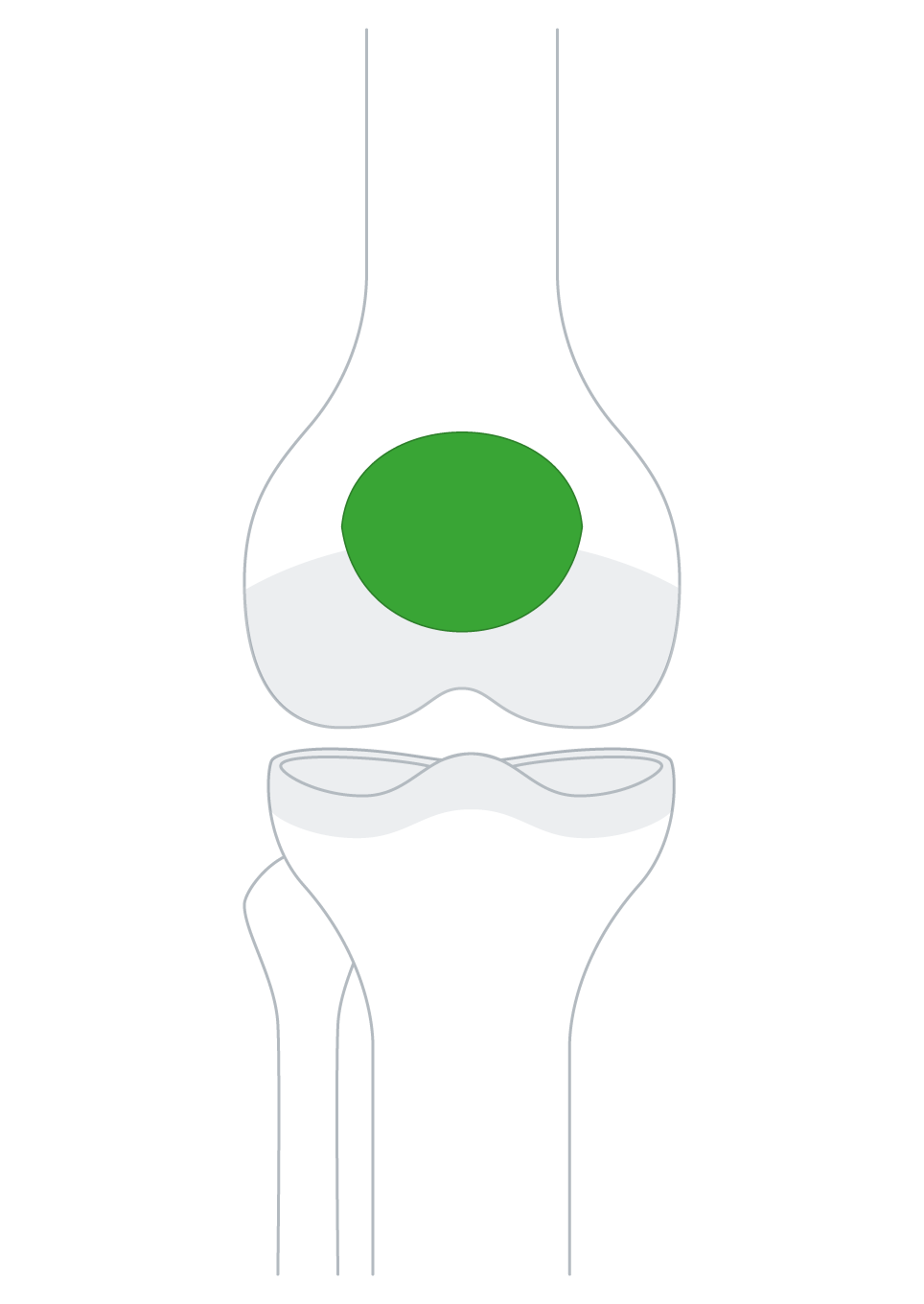
partial knee replacement
This category involves the unicompartmental knee replacement (UKR) and the patellofemoral replacement (PFR). Indications for partial knee replacement are significantly narrower, yet this procedure can yield an excellent outcome in the right patient, even better than the total knee replacement. Usually, the in-hospital stay is shorter.
Are you a good candidate for a partial knee replacement? This depends on various clinical and radiological criteria, as well as your lifestyle.
Dr. Klasan is constantly working on scientifically tracking and improving the outcomes with research groups from Germany, Australia and New Zealand.
revision knee replacement
Unfortunately, some knee replacements face problems that require further surgery. There are several reasons why patients may require additional surgery.
A complete workup is essential, as it determines the type of surgery.
Dr. Klasan puts a lot of clinical and scientific focus on understanding the reasons for revision and improving surgical techniques of revisions.
